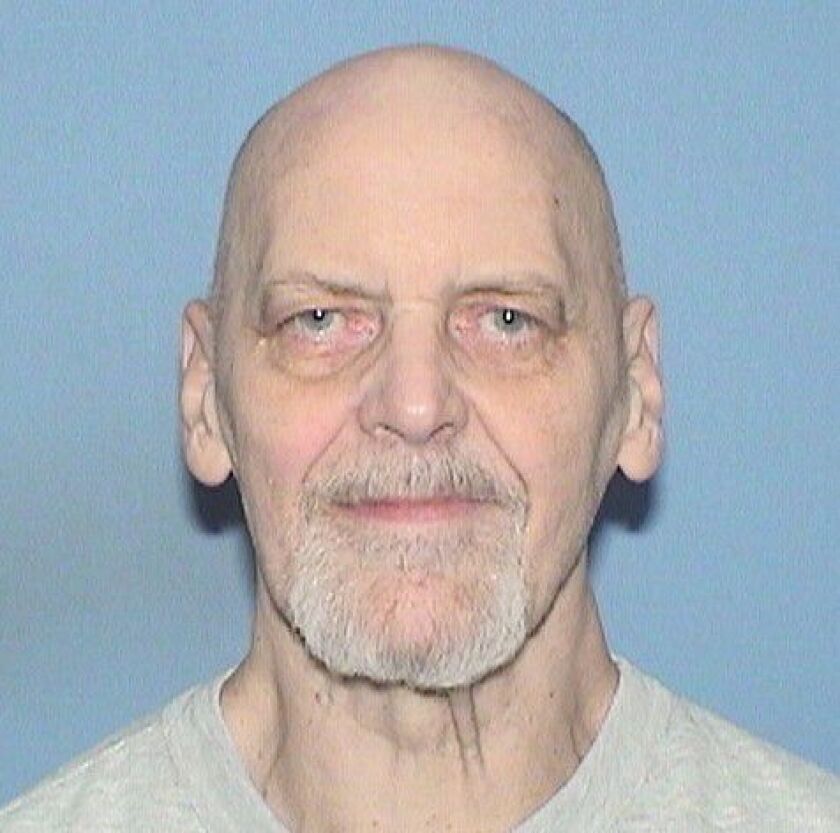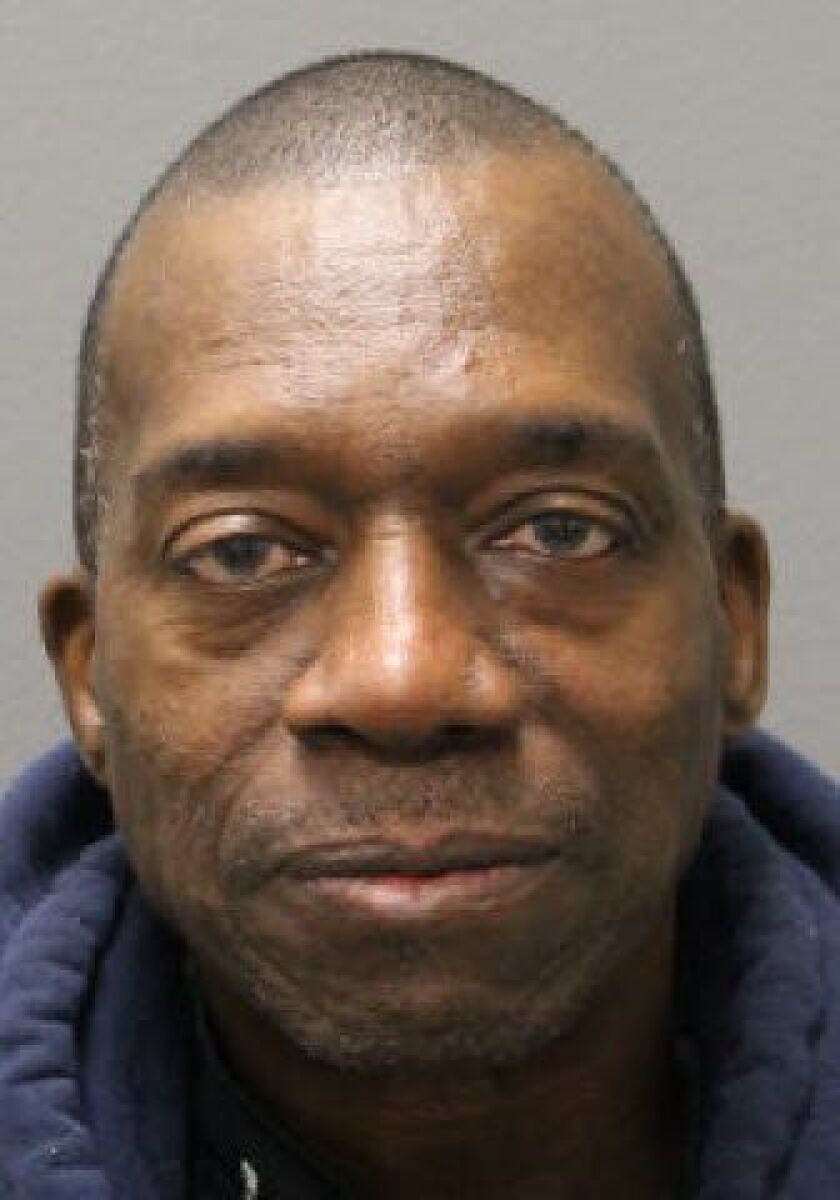Wielding a hatchet, Otis Williams slaughtered a man and woman in Kankakee County in 1974 to keep them from talking to the police about meat, candy, cigarettes, vegetables and fruit he’d stolen from a market.
Convicted in their deaths, Williams and an accomplice got prison terms of 800 to 2,400 years.
In 2013, making his 30th appearance before the Illinois Prisoner Review Board, Williams finally succeeded in winning his freedom. The board said he was remorseful, a model inmate and no risk to the public. He was paroled by a vote of 11-4. Two years later, his accomplice A.D. Clark also was paroled.
Williams, Clark and a man who massacred five people in a shooting spree at a restaurant are among dozens of elderly Illinois murder convicts who have won parole over the past decade, a Chicago Sun-Times examination of state records found.
And the fact they were able to go free offers a glimmer of hope to Larry Hoover, co-founder of the Gangster Disciples, Chicago’s largest street gang, that he, too, might one day go free despite having been sentenced to 100 to 150 years in state prison for ordering the killing of another gang member.
Like Williams, Clark and the others, Hoover was classified with a “C number” when he entered the Illinois Department of Corrections prison system. C-number refers to those people sentenced to state prison in Illinois before 1978 — the year the state did away with indeterminate sentences that gave a range for a prison term rather than a fixed number of years.
Today, those convicted of first-degree murder in Illinois must serve their sentences without any possibility of parole.
But killers convicted before the law change in 1978 — those with C numbers — are entitled to a parole hearing at least every five years.
Jennifer Soble, executive director of the Illinois Prison Project, says the parole board seems to be “more receptive” in recent years to C-number inmates’ requests for parole.
One of her C-number clients, 68-year-old Amenseb B’Ne Ra, was paroled in March after being convicted of fatally shooting a man and wounding his co-worker in 1975 in a $5,500 payroll robbery at a printing firm in downtown Chicago. He was sentenced to 100 to 300 years in prison. Soble says B’Ne Ra was “almost certainly innocent.”
According to Soble, the number of remaining inmates with C numbers is down to about 100 from a peak of more than 16,000.
“People are being released, and they’re being released regularly,” she says.
A Sun-Times review of Illinois Prisoner Review Board data found that about 50 aging inmates with C numbers have been paroled in the past decade. Ten of them had been sentenced to longer prison terms than Hoover and won parole over the objections of prosecutors and victims’ families.
Many other C-number inmates have died in prison.
Among the most notorious C-number inmates paroled in recent years:
- Carl Reimann, 79, convicted of a massacre in Yorkville in 1972. He fatally shot two customers and three employees in a holdup of the Pine Village restaurant. One victim was 16-year-old Cathy Rekate, a part-time dishwasher. The widow of another victim said she forgave Reimann but didn’t want him to be paroled. But parole board members said Reimann claimed to have a religious conversion in prison and felt remorse. Reimann, sentenced to 50 to 150 years in prison, was paroled in 2018 by a vote of 8-4.
- Ruben Taylor, 70, a member of the De Mau Mau gang that killed a Barrington Hills family in 1972. The gang randomly picked the home to rob. They forced Paul and Marion Corbett, their 22-year-old daughter and her aunt into a pantry. Their pet dachshund barked at the intruders, and a robber threw a knife at it. The daughter told him to stay away from the dog, and Taylor shot her in the chest. His brother Donald shot each of the other three family members in the head. Taylor was sentenced to 100 to 150 years. Asked by a parole board member how he’d respond to being called “unrepentant,” he answered, “They don’t know me and haven’t walked in my shoes” but also said, “What can you say, other than you’re sorry?” The board granted Taylor parole by a vote of 8-4 in 2018. An accomplice, Michael Clark, was serving a sentence of 20 to 200 years. He was paroled last year by a vote of 11-2.
- Jerome Zamp, 70, convicted of the 1977 contract killing of Dr. Hans Wachtel, head of obstetrics at Woodlawn Hospital on the South Side. Zamp got $2,000 for the killing, prosecutors said, though no one’s ever been convicted of hiring him to kill the doctor. Zamp accepted responsibility for the murder and said he was sorry, according to a parole board member. Zamp, sentenced to 200 to 300 years in prison, was paroled in 2018 by a vote of 9-5.
- Calvin Campbell, 64, convicted in the fatal shooting of an off-duty Cook County sheriff’s deputy in 1974 during a robbery in an elevator in the now-demolished Robert Taylor Homes on the South Side. Prosecutors say Campbell rifled through the deputy’s pockets and stole $2. He later expressed remorse, according to a parole board member. Campbell, sentenced to 100 to 300 years in prison, was paroled in 2015 by a vote of 8-4.
Hoover, who repeatedly has been denied parole since the 1970s, has been in the news recently because he’s trying to take advantage of the First Step Act that President Donald Trump signed into law with bipartisan support. The 2018 law allows inmates to ask for their federal prison sentences to be recalculated based on lower crack cocaine penalties that have been put in place in 2010.
That makes Hoover’s legal situation more complicated than those of most C-number inmates. While in state prison for ordering the killing of a gang member in Chicago in 1973, he was sentenced in 1998 to life in federal prison for running a criminal enterprise — the Gangster Disciples — from behind bars. While Hoover was the boss, thousands of the gang’s members brought in more than $100 million in drug sales and were responsible for rampant violence in Chicago and other cities, prosecutors said.
Because of his double-barreled state and federal prison terms, it has long appeared unlikely that the former chairman of the city’s largest gang might ever see a day of freedom. But his odds appear to have improved.
The same federal judge who sentenced Hoover to life in prison is now considering whether to reduce his sentence — or end it — under the First Step Act.
U.S. District Judge Harry Leinenweber has asked prosecutors to let him know whether the Illinois Department of Corrections will be able to keep Hoover from engaging in gang activities if he’s freed from federal prison and moved to state prison to serve his murder conviction.
Leinenweber has given lawyers for the government and Hoover until the end of July to respond.
For now, Hoover remains in a federal super-max prison in Colorado with the likes of the Unabomber and Sinaloa drug cartel kingpin Joaquin “El Chapo” Guzman Loera.
Leinenweber already has freed some of Hoover’s top associates from prison after they asked for breaks in their sentences. A Sun-Times analysis found more than 60% of the inmates in Chicago who’ve sought an early prison release under the First Step Act have been freed.
If Hoover, like his co-defendants, gets released from federal prison, the next question will be whether he’ll get paroled by the state, a once unthinkable prospect. At Hoover’s most recent hearing, in 2017, the Illinois Prisoner Review Board voted 14-0 to deny him parole. His next hearing is scheduled for 2022.
Parole officials say they won’t discuss pending cases. In general, they say many factors go into a decision to release someone and that parole never should promote disrespect for the law or diminish the seriousness of the offense. They say the board weighs disciplinary records in prison, inmates’ demeanor in their interviews with the board, their education behind bars and plans for work and housing if they are released from prison.
For decades, Hoover’s supporters have called him “the old man” out of respect. Now, at 69, the nickname fits.
Soble, the director of the Illinois Prison Project, says the state saves money by freeing elderly inmates, who cost twice as much to house as younger ones because many suffer from expensive medical conditions.
As with many C-number murder cases, Hoover can expect strong objections to his parole from prosecutors and others.
Asked whether she thinks Hoover should be paroled, Soble says: “The statistics show the recidivism rates for elderly people who have served prison time are shockingly low. They’re basically zero.”










